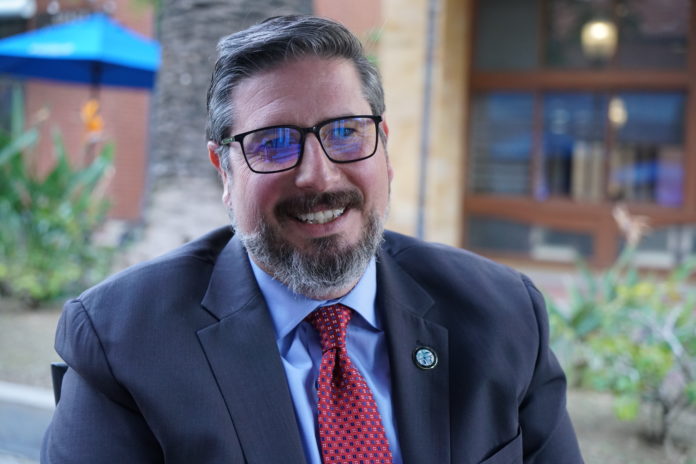GLENDALE, Calif. — Ardashes “Ardy” Kassakhian was selected as mayor of Glendale, the Armenian-filled “Jewel City” of California, last month, on April 5, but he is not a newcomer to public service to Glendale. He has been serving on the city council for about two years, and prior to that held the elected position of city clerk for some 15 years.
He declared that many people do not have a realistic notion of what a mayor can accomplish. “As mayor now, there is the expectation that somehow I am an all-powerful Wizard of Oz, controlling things in the city. I have to continuously give people small civic lessons and explain to them that it is mostly a ceremonial position. Although I am appreciative for their well wishes and their accolades, I am really only the first among equals and we all work together with equal powers, except for the fact that I get to run the city council meetings,” Kassakhian said.
On the other hand, he explained: “While you still have to rely on three total votes – in other words two votes in addition to your own on the city council, to make sure that people on the council are supportive of your agenda, the mayorship does gives you a pulpit for urgency.”
The Covid Period
Kassakhian was elected to the Glendale City Council on March 3, 2020. He said, “Literally two weeks later we went into lockdown and I had to take my oath of office over Zoom. The world changed, conceivably forever – although we are now seeing some return to ‘normalcy.’”
Covid pushed aside all his goals for office. He said, “The last two years were very difficult, very challenging, if for no other reason than the uncertainty of what the future held. In terms of the local economy, business closures, issues regarding relations, and this now-maligned word ‘mandate,’ these were all things that we tried quickly to understand and implement, and do this in a way that was most effective…We tried to do the best we could with the information that we had.”








